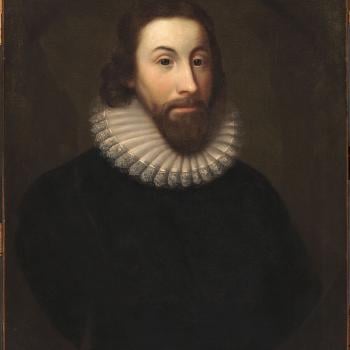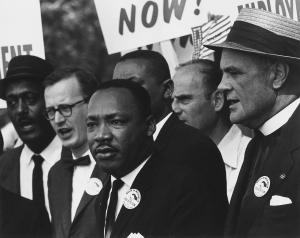On October 14, 2023, Israeli missiles struck the oldest church in Gaza. The Church of St. Porphyrius, built originally in 425AD, was sheltering hundreds of Palestinians seeking reprieve from Israel’s bombardments. At least sixteen Palestinians were killed by Israel in the strike. Photos of the disaster circulated online. And while American preachers were still mourning the Hamas attack on the Kibbutz on October 7, Palestinian Christians were raising their voices once again about the Palestinian predicament since 1918 (by historian Rashid Khalidi’s periodization).
Since then, Christian Zionism once again became a hot topic in the international Christian community. Christian Zionism is a theological ideology which supports the modern State of Israel. It equates the State of Israel with the biblical Israel of the Old Testament, and Israelis with biblical Israelites.
Christian Zionists often reduce the Israel-Palestine “conflict” to a blood feud between the descendants of Isaac and Ishmael. [1] They support Israel because by blessing Israel, they themselves will be blessed (Gen. 12:3). Depending on their theological persuasion, Christian Zionists believe that supporting Israel will either hasten Christ’s return or put them on the right side of history when Christ does return. [2]
Christian Zionism: New or Ancient?
For Christians who grew up around pro-Israel rhetoric, it is clear that this ideology has a strong hold on many Western Christians. Grounding support for a modern state in the Bible itself is an effective way to garner political support and mobilization. Indeed, Israel has powerful Christian friends. And as Netanyahu himself has said, his greatest friends are the evangelicals.
But as strong as Christian Zionism is, how Christian is it, really? This question is not meant to be snide, as if suggesting that Christian Zionism is just a political ideology that only wraps itself superficially in religious garb. [3] It is rather meant to push back on one of the foundational tenets of Christian Zionism: that Christians at nearly all times and nearly everywhere have always supported Israel.
As Sean Durbin writes in Righteous Gentiles,
While Christian Zionism and what it means to support Israel has varied (and continues to vary) throughout history, this form of Christian identity must be continuously enacted in a given context, as though it were a static thing—in this case a static form of authentic, and hence original, Christian identity. [4]
What Durbin is saying here is that Christian Zionism has changed over time. It has a history. And since it has a history, it has an origin. But contrary to what many pro-Israel Christians might say, being pro-State of Israel has not always been a Christian position. A non-eschatological Jewish return to Palestine was not in the Christian imagination for most of Christian history.
Views of the Church Fathers
Christian Zionists will often trace support for a Jewish return to Israel to the early Church. Common sources for pro-Israel Christians include Justin Martyr, Tertullian, and Irenaeus. However, these interpreters often miss an important distinction between temporality and finality (or the present age and the age to come). There is a difference between a temporal and a final return of the Jews to the Promised Land.
Justin Martyr, Tertullian, and Irenaeus resembled the “long-standing rabbinic tradition focused on the messianic hope and the expectation of an eventual Jewish return to Zion accomplished by the Messiah alone.” [5] They did not believe that such a return was to be an act of man, but an eschatological act of God. The secular Jewish Zionists, and indeed the first Christian Zionists, in supporting a temporal return to Palestine were really going against centuries and millennia of Judeo-Christian tradition.
Views of the Medieval Church
By the first century, most Jews had been dispersed from Judaea. As New Testament scholar Bart Ehrman writes, “By some estimates, Jews made up 7 percent of the total population of the Roman Empire. . . . Only a fraction of these lived in the Jewish homeland. Some scholars calculate that in the days of Jesus, twice as many Jews lived in Egypt as in all of Israel itself.” [6]
The question of diaspora shaped one of the most influential voices on Christian attitudes towards Jews and Judaism: Augustine. Like most of the rabbinic tradition, Augustine saw the diaspora as God’s will. As Donald M. Lewis describes, Augustine
understood the exile of the Jews from Palestine as divine punishment for Israel’s unfaithfulness; specifically, he believed their expulsion was God’s judgement on them for their role in the death of Christ. They had to remain a people separate and dispersed to show the justice of divine punishment for their deicide. The idea of Christians working to return them to their homeland would have been anathema. [7]
For Augustine, the Jews merited protection in Christendom. But this was not exactly because Augustine valued the Jewish people as an end in themselves. Rather, the Jews were to serve as a reminder to Christians as to what happens when God’s people (then largely understood to be the “spiritual” Israel, the Church) disobey God. This is not altogether different from how Christian Zionists view Jews. Christian Zionists support the State of Israel not as an end in itself, but in its utility within their understanding of the salvific story.
Conclusion:
A deep dive into the primary sources from Justin Martyr to Augustine may merit attention in the future. But for now, suffice it to say that Christian Zionism, whenever it began, it did not begin with the Early Church; nor did it begin with the medieval theologians. As Carl Ehle writes in his dissertation on Christian Zionism,
One might expect to find a long tradition of commentary on the restoration doctrine stemming from the early church; however, one gains the impression from reviewing the equivocal or noncommittal statements of the New Testament and of the Church Fathers that the doctrine of restoration is an innovation of the second generation of the Protestant Reformers. [8]
Christian Zionism derives a significant amount of its force from presenting itself as the “natural Christian position.” In reality, it has a developmental history. A history that, as we will see in future articles, did not begin until after the Protestant Reformation.
What we Christians must consider is whether this relatively new theology is worth holding onto and reiterating in our own beliefs. As we have already demonstrated in a prior article, Israel’s right to the land according to the Bible is conditional upon their conduct and covenant observance. Support for Israel is waning even among younger evangelicals. And strong Jewish voices such as that of Naomi Klein are accusing the State of Israel for worshipping what Klein calls the “false idol” of Zionism.
Of course, these points alone are insufficient to “debunk” Christian Zionism. But it is the author’s hope that these along with many, many more points will bring Christians to reflect seriously and honestly on whether Zionist theology is indeed true and good.
References
1. This view is also found outside of Christian Zionist communities. The French scholar Louis Massignon, for example, was an ardent supporter of Palestinian refugees and defended, as Edward Said writes, “Arab Muslim and Christian rights in Palestine against Zionism,” which he referred to as “bourgeois colonialism.” However, as Said goes on to say, “the framework in which Massignon’s vision was held also assigned the Islamic Orient to an essentially ancient time and the West to modernity.” Thus, even Western allies of Palestine were gripped by what Said called “Orientalism.” Edward Said, Orientalism, 25th anniversary edition (New York, NY: Vintage Books, 1994), 270.
2. For more definitions and elaborations of Christian Zionism, see Donald M. Lewis, A Short History of Christian Zionism: From the Reformation to the Twenty-First Century (Downers Grove, IL: InterVarsity Press, 2021) and Faydra L. Shapiro, Christian Zionism: Navigating the Jewish-Christian Border. (Eugene, Oregon: Wipf and Stock Publishers, 2015).
3. The quantitative research on Christian Zionism consistently shows that religion plays a powerful role in explaining why Christian Zionism is so strong. See Motti Inbari, Kirill M. Bumin, and M. Gordon Byrd. “Why do evangelicals support Israel?.” Politics and Religion 14, no. 1 (2021): 16.
4. Sean Durbin, Righteous Gentiles: Religion, Identity, and Myth in John Hagee’s Christians United for Israel, Studies in Critical Research on Religion 9 (Leiden: Brill, 2019), 5.
5. Lewis, A Short History, Introduction.
6. Bart D. Ehrman, A Brief Introduction to the New Testament (New York, NY: Oxford University Press, 2021), 39.
7. Lewis, A Short History, ch. 1.
8. Carl Frederick Ehle Jr., “Prolegomena to Christian Zionism in America: The Views of Increase Mather and William E. Blackstone Concerning the Doctrine of the Restoration of Israel” (PhD diss., New York University, 1977), 1.













